News
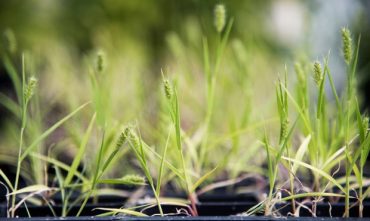
May 28, 2015
Move over Arabidopsis, there’s a new model plant in town
Bond LSC researchers showed for the first time ever that a grass, Setaria viridis, can receive 100 percent of its nitrogen needs from bacteria when associated with plant root surfaces. This grass will now serve as model for research into biological nitrogen fixation that could benefit crop development. | Photo by Roger Meissen, Bond LSC By Roger Meissen | MU Bond Life Sciences Center As farmers spend billions of dollars spreading nitrogen on their fields this spring, researchers at the University of Missouri are working toward less reliance on the fertilizer. Less dependence on nitrogen could start with a…
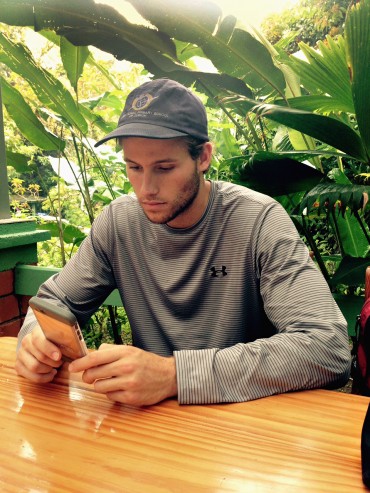
May 21, 2015
Forest at your fingertips: smartphones enhance fieldwork
“Fieldwork” means many things to researchers, but in the past it often meant working without easy access to communication. Now cell phones allow my students visiting the La Selva Biological Station in the lowland rainforest of Costa Rica to remain connected.
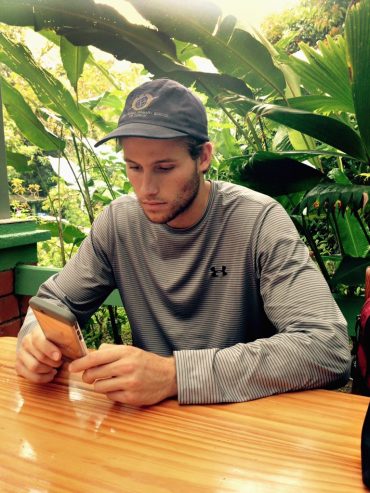
May 21, 2015
Forest at your fingertips: smartphones enhance fieldwork
An MU student uses his cell phone while in Costa Rica. | Photo by Jack Schultz, Bond LSC By Jack Schultz | Director of MU Bond Life Sciences Center “Fieldwork” means many things to researchers, but in the past it often meant working without easy access to communication. Now cell phones allow my students visiting the La Selva Biological Station in the lowland rainforest of Costa Rica to remain connected. While our science and journalism majors learn to report on biological research, I find that I can be replaced. As an experienced biologist who has taught and…
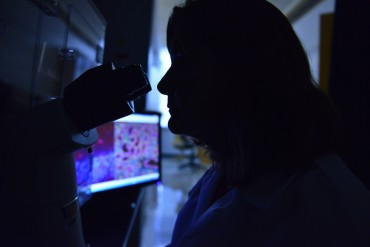
May 12, 2015
The Curious Case of Inflammation: One Lab’s Mission to Put the Pieces Together
Gary Weisman has been investigating one criminal for the past 30 years. And he’s certain there’s a way to prevent negative effects of the unsolved case of inflammation.
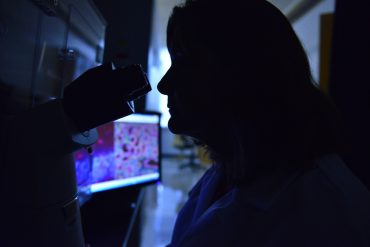
May 11, 2015
The Curious Case of Inflammation: One Lab’s Mission to Put the Pieces Together
White coat, dark room. Jean Camden, a senior technician in the Weisman lab, reviews salivary gland and brain tissue samples for research on inflammation. | Photo by Paige Blankenbuehler, Bond LSC By Paige Blankenbuehler | MU Bond Life Sciences Center There’s a criminal on the loose, striking every day. Millions fall victim, but there’s still no way to stop it. And, in all likelihood, you have been hurt by it. If inflammation is an unsolved criminal case of the last three decades, then Gary Weisman has been the detective. He’s certain there’s an accomplice — perhaps many…
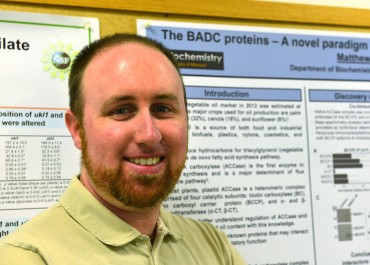
May 8, 2015
Unlocking plants’ metabolic thermostat — Missouri Life Sciences Week poster winner talks research
Meet Matthew Salie, who works to grow chubbier plants in the lab of Bond LSC's Jay Thelen. We highlight Salie and list all poster award winners from Missouri Life Sciences Week 2015
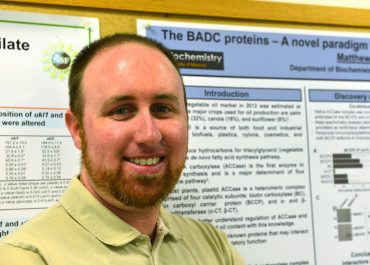
May 8, 2015
Unlocking plants’ metabolic thermostat — award-winning LSW posters
Matthew Salie would like to see chubbier plants. “You’ve probably never really seen a fat plant before, right?” said Salie, a fourth year MU graduate student in biochemistry. “Humans, we make plenty of extra fat and store that as energy. But plants don’t really need to do that — they make just as much as they need, and that’s about it.” Salie studies plant metabolism with Bond LSC researcher Jay Thelen, an associate professor of biochemistry. He’s one of 25 winners honored for research presented during Missouri Life Sciences Week 2015. The Thelen lab looks for ways to increase the…
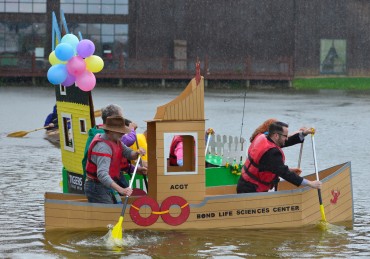
April 30, 2015
Float your boat
Bond LSC raised $600 for the Food Bank of Central and Northeast Missouri as participants in the Float Your Boat event.
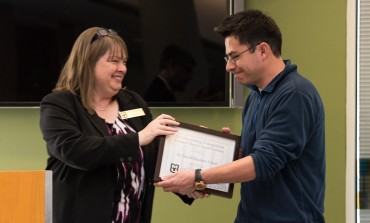
April 30, 2015
Outstanding mentors
Bond LSC faculty win and are nominated for Outstanding Undergraduate Research Mentor Awards
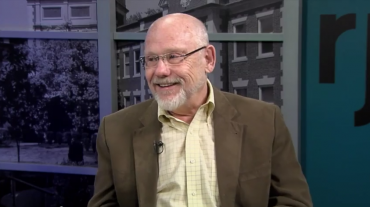
April 23, 2015
Talking about science
Director Jack Schultz joins Radio Friends with Paul Pepper to talk about how we talk about science.
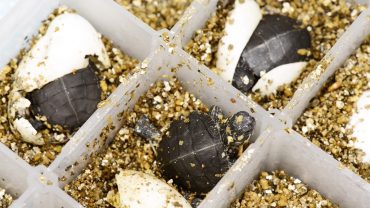
April 16, 2015
BPA overrides temperature to decide turtle sex
The environmental build-up of bisphenol A (BPA) can result in a life-changing shift for aquatic animals. For painted turtles, exposure to this chemical can disrupt sexual differentiation,, according to new research in the General and Comparative Endocrinology. Scientists at the University of Missouri have teamed up to show how low levels of certain endocrine disruptors like BPA can cause males to possess female gonadal structures in newly-hatched turtles. This collaboration between MU, Westminster College, the U.S. Geological Survey (USGS) and the Saint Louis Zoo exposed turtle eggs to levels of BPA similar to those currently found in the environment.
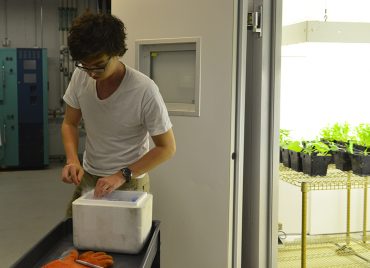
April 13, 2015
Five Bond LSC undergraduates win Arts and Sciences Scholarships
Five undergraduate researchers at Bond LSC were awarded arts and sciences scholarships to help them continue their education. Congratulations to each of the winners. Hannah Baldwin/Bond LSC MU undergraduate Wade Dismukes gathers plants from a growing room in Bond LSC to prepare for an experiment about plant evolution on Thursday, April 9, 2015. Dismukes, who won an arts and sciences scholarship, is a researcher in Dr. Chris Pires’ lab. “I got into science because I had good mentors,” he said. Wade Dismukes started his career as an undergraduate researcher at Bond LSC in Dr. Jack…